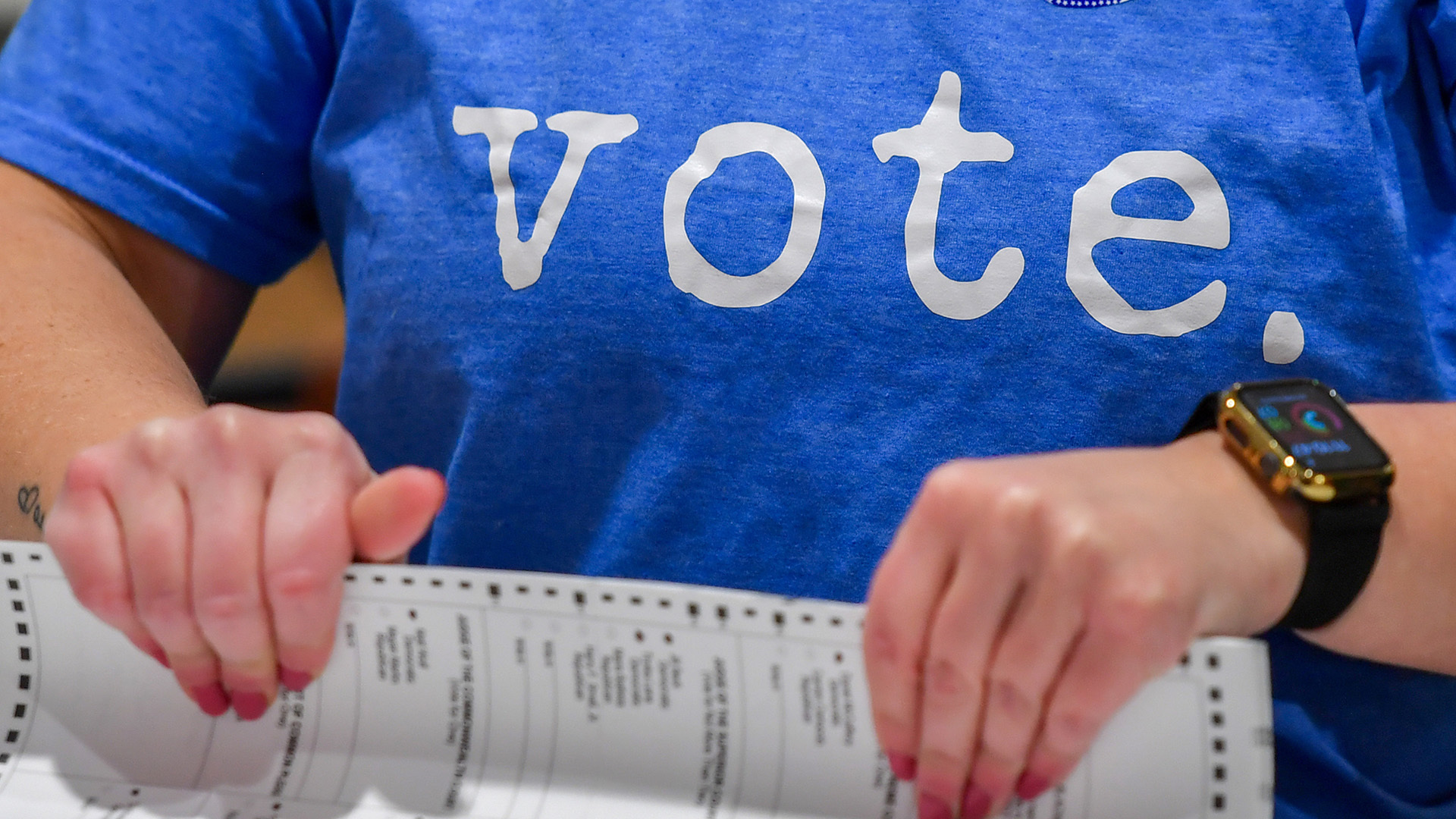
[Karah Rucker]
Depending on your political preferences, views on election integrity widely differ.
According to an Associated Press poll, 22% of Republicans trust votes will be tallied accurately in the 2024 presidential election, Compared to 71% of Democrats.
The skepticism within the Republican Party largely stems from election fraud claims that tainted the 2020 election.
Now, headlines with words like “voting machines malfunction,” “voting machine glitch flipped votes,” “issue at voting machines” and counties face “ballot-marking machine issues” all on the day of an election add to the distrust in America’s democracy.
We want to offer some clarity on some of those “issues” from this week’s election.
From suspicious summaries of votes flipping, to a touch screen that would change from one straight-party ticket to a straight-party ticket for the opposing party, these were issues seen in some Pennsylvania and Kentucky counties.
In Northampton County Pennsylvania — with a population over 300,000 — voters were asked to decide whether two judges should be retained for additional 10-year terms.
When voters received their printed voting summary, the “yes” or “no” votes were switched. Election officials learned it was an issue on all 300 plus voting systems in the county.
Election officials say it was a clerical and coding error, and even though printed voting records showed a switch in votes, the voting machines’ “back-end system” tabulated the votes accurately. The officials also said the problem was confined to the judges’ races.
Meanwhile in Kentucky — with a governor’s race on the line – voting machines in some counties were selecting the wrong options on touch-screens. When a voter went to select a straight-party vote, election officials say sometimes it would highlight the wrong party.
Here is a local news report covering the issue.
[ELECTION OFFICIAL]
“We received calls all afternoon from voters who had concerns about the electronic voting machines they used. They say they tapped on the screen to vote for one party but it actually voted for the other.”
[KENNY BARGER]
“Yes, we’ve had issues. This isn’t the way an election is supposed to be conducted.”
“That all sounds horrible and it is, but that’s not the voting. That’s a ballot marking device.”
[KARAH RUCKER]
Apparently the issue was a persistent one starting days before during early voting, according to the election official. So, these flyers were hung at polling locations, alerting a voter to select their candidate by clicking their name rather than the tiny box because the touch screen was more efficient at reading a voters’ selections that way.
The county clerk also said it was an issue that did not impact the election results.
The issues were on a ballot marking system: a voter marks their choices electronically, then the machine prints a ballot that a voter then “reviews” and “submits” through a scanner — and that casts the vote.
Twenty-three counties in Kentucky use the same ballot-counting machines, though it’s unclear how many experienced the same issues.
County officials face much pressure ahead of an election. There is no evidence given in these cases that show malicious intent behind the errors.
“Hiccups,” “glitches” and “issues” reported were minimal compared to the thousands of local counties holding elections.











